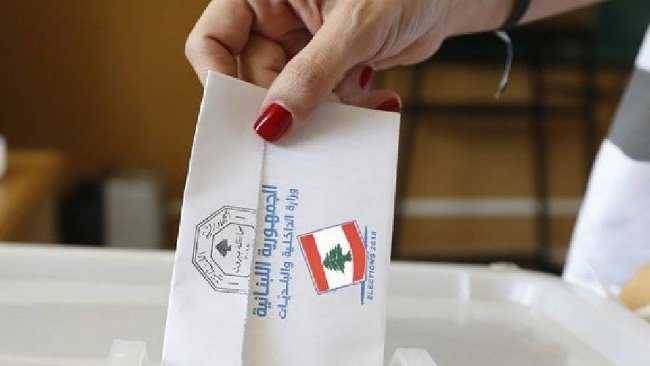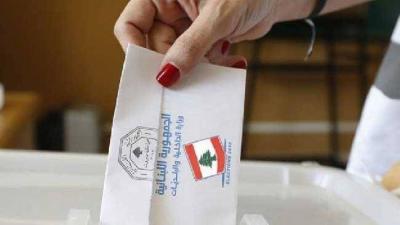The results of the parliamentary elections in Lebanon have created deep wounds within the political landscape that cannot be easily absorbed or controlled. They also surprised the institutions specialized in surveying voter opinions, which contradicted their predictions with what the ballots revealed. This situation requires the political forces that participated in the elections to reassess their standings and scrutinize their numbers, rather than having some factions rush to advance by blaming their failure in several electoral districts on their allies, without recognizing the "wars of cancellation" that took place among "friendly-enemy" candidates running on the same list.
The parliamentary elections revealed hidden matters and opened the door for political fires to flare up among allies, and even within the same political faction, specifically among candidates on the "Free Patriotic Movement" list who competed for preferential votes. Even though its leader, MP Gebran Bassil, attempted to divert attention away from the escalating disputes among his candidates on the long election day, he focused in his victory celebration on targeting his opponents, foremost among them the Lebanese Forces party. At the same time, he invoked his campaign against the Speaker of Parliament, Nabih Berri, without naming him, which provoked a heavy response from his political assistant, MP Ali Hassan Khalil.
The head of the "Arab Unification Party," Wiam Wahhab, was the boldest in his attack on the "Free Patriotic Movement," stating that his alliance with the head of the Lebanese Democratic Party, MP Talal Arslan, secured him three shares in the Shouf-Aley district, allowing him to win three parliamentary seats. He added that the backing of Hezbollah enabled him to secure five seats, while Bassil obtained three seats in Akkar due to his alliance with parties belonging to the resistance axis.
Arslan followed in the footsteps of his ally Wahhab, announcing his willingness to conduct a critical review of his alliances with friends before foes, indicating that his allies did not fully support him. Therefore, Bassil's celebration of victory under the banner of leading the largest parliamentary bloc was misplaced, not because the number of his MPs decreased compared to the previous parliamentary elections, but because his calculations were inaccurate. How could he respond to what Wahhab said? Would he remain silent indefinitely?
Even if Bassil decided to turn a blind eye to what Wahhab stated, he could not disregard the realities reflected by the elections in the Metn North and Sidon-Jezine districts, which clearly indicate his deliberate ignorance of the war that occurred between Ziad Aswad and Amal Abou Zayd, and the conflict between Eddie Maalouf on one hand, and Ibrahim Kanaan and Elias Bou Saab on the other.
The same applies to the Tashnaq Party, which recorded a noticeable decline, retaining three parliamentary seats as opposed to what it held in previous elections, even though it owes loyalty to Hezbollah, which secured its victory in Zahle, and to former Deputy Prime Minister Elias Michel Murr, who enabled it to retain the parliamentary seat for its leader Hagop Pakradounian.
The Tashnaq Party has found itself in a challenging position, forced to seek a lifeline to maintain its representation in Parliament, despite having been a stronghold for the list it led in the first Beirut district prior to the outbreak of the Lebanese Civil War, winning uncontested in one election cycle after Selim Waked withdrew in favor of the then-head of the Phalange Party, Pierre Gemayel.
Additionally, the party is now compelled to reassess its alliances to learn from the underlying reasons behind the Armenian street rallying against it and towards its opponents in two consecutive election cycles, where the change movement, led by Paula Yacoubian, won two parliamentary seats in Beirut through an alliance with Cynthia Zarazir. This indicates a shift in public sentiment towards its opponents as a protest against the Tashnaq's alignment with the "Free Patriotic Movement" and through it, with the resistance axis.
As for Hezbollah, it failed to provide the minimum support for candidates close to the Syrian regime after it poured all its efforts into boosting the "Free Patriotic Movement" candidates, due to its urgent need for political cover in facing its opponents who demand the disarmament of the party and to achieve the largest number of preferential votes in its open contest with its strategic ally, the Amal Movement. This has led to a rift within the Shiite duo's supporters, although its political implications remain silent.
Thus, the top-down alliance among the "March 8" forces previously did not provide the necessary protection to control the behavior of their supporters and followers at the polls, even though Berri decided to position himself in the center, later joined by the Marada Movement, which confirmed through MP Tony Franjieh that it would not join the alliance.
On the other hand, the Progressive Socialist Party made noticeable gains by overwhelming its political opponents without being troubled by the arrival of representatives from the change forces to the Parliament. Meanwhile, the fragmentation of the Sunni vote due to the withdrawal of former prime ministers and the current PM Najib Mikati led to the distribution of Sunni seats among several MPs, although the largest share goes to the change forces, despite former Prime Minister Fouad Siniora distinguishing himself by supporting the "Beirut Faces" list and other lists in Tripoli, Zahle, and Western Bekaa districts.
However, it is essential to note that the hesitation of former Prime Minister Saad Hariri and his bloc to run did not allow the resistance axis to fill the void; rather, it provided an opportunity for the change forces to occupy it, regardless of their varying affiliations. This challenges the unjust accusations targeting the Sunni community, sometimes alleging the presence of "Daesh cells" in densely populated areas and other times labeling Tripoli as a second Kandahar.
Therefore, although the new parliament lacks the presence of Sunni figures, the election results remained within a framework of moderation and the preservation of civil peace, absent all forms of extremism.




